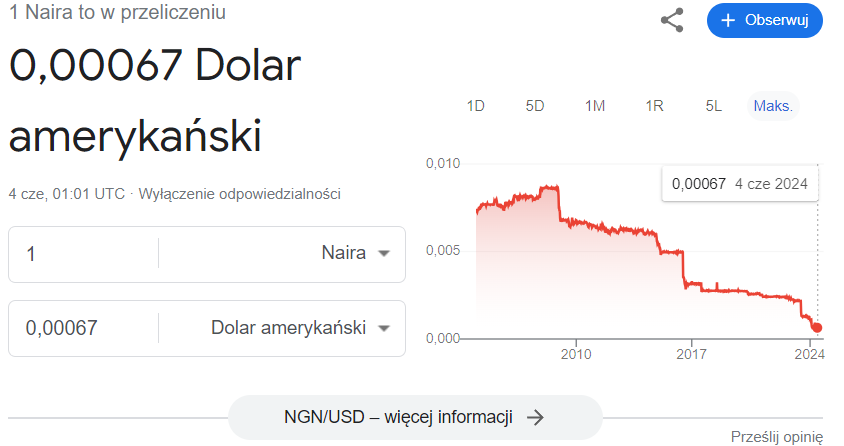Ricardo Salinas Pliego, one of the richest people in Mexico and the world, encourages his fans on social media to buy bitcoins. It treats cryptocurrency as a hedge against the devaluation of fiat currencies.
Ricardo Salinas Pliego encourages you to buy BTC
Mexican billionaire Ricardo Salinas Pliego advises to buy bitcoins. In his opinion, cryptocurrencies will help us preserve our wealth. This is especially important in times of devaluation of fiat currencies.
The businessman has already encouraged investing in BTC several times. Now he is back on topic, commenting on how the value of the Nigerian naira is falling.
Buy bitcoins and save them, be careful!!!
– wrote Pliego.
And in fact, the Nigerian currency almost constantly depreciated against the dollar in May. Reason? The policy of the country's government, which was aimed at… stabilizing its course. Politicians have even started making life difficult for cryptocurrency exchanges. The point was that Nigerian citizens began to flee – naturally – towards safe havens. They bought BTC so that their funds had some value.
The government's policy had the opposite effect. Besides, the naira has been depreciating for years.

Salinas Pliego was asked in the comments section what he would suggest investing in: ETFs, stocks and cryptocurrencies. He replied: “in bitcoin.”
A billionaire who trusts cryptocurrencies
Pliego has been saying for years that bitcoin is a safe haven. In 2021, he said publicly that the cryptocurrency “has extraordinary properties” and described it as “the gold of the modern world.”
In 2022, he reported that Elektra Group, a department store chain owned by Salinas Group, may begin selling bitcoin as a commodity.
The situation with the Nigerian currency shows that bitcoin can be treated as a safe haven. Especially when someone treats it as a long-term investment. The same is the case with gold, in which it is worth investing capital, but only if we think about a long-term investment.
Today, one bitcoin costs approximately USD 69,000, which means a price increase of approximately 2% per week.

